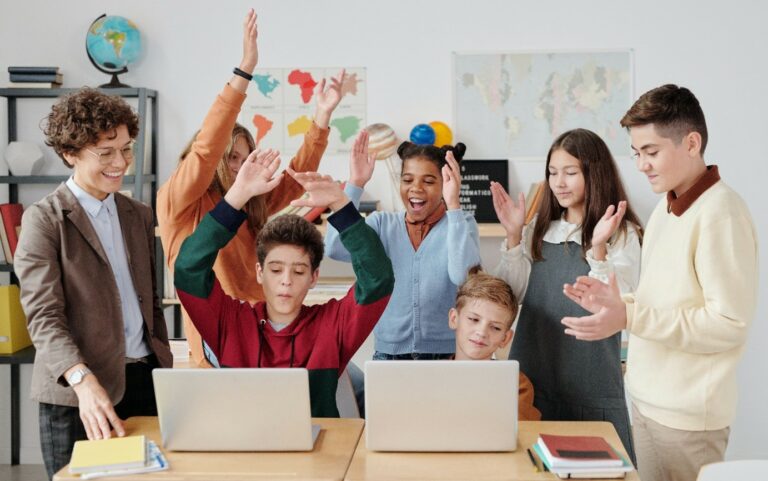Our Erasmus+ project GDL – Gamification of Digital Learning promotes the use of Gamification in online and face-to-face learning and aims to support secondary school teachers and educators in developing a new, more engaging, stimulating, and inclusive teaching methodology.
Numerous studies have shown, in fact, that Gamification, i.e. the use of games and their mechanics and dynamics in the educational context, can improve students’ motivation, involvement, and interest, increasing their creativity, social bonds, and enjoyment.
The principle behind Gamification is very simple: have fun to get better results!
In this way, the game becomes a real teaching tool that can better engage students and ensure that the knowledge and skills learned through gaming interactions remain firmly imprinted in their memory.
“Gamifying” the learning process does not necessarily mean using video games, but bringing the typical game mechanisms (points, levels, prizes, virtual goods, avatars, rankings, quizzes, riddles, etc.) into education, using both the physical and digital environment.
Gamification is an extremely useful method to support and motivate students with specific learning disorders. It is easily accessible and fully customizable: this aspect can help students with specific learning disorders because it allows teachers to adapt the materials, fonts, and all aspects to the needs of the students. Moreover, with Gamification, teachers provide instant and constant feedback, which is very important for these students.
The integration of game elements into teaching is beneficial for both students and teachers. Teachers are stimulated by a new way of teaching and the preparation of lessons through these new innovative teaching methods can be a source of fun not only for the students but also for them.
Through Gamification and the preparation of customized materials, teachers increase the level of classroom engagement, stimulating participation and learning.
Finally, Gamification offers teachers better tools to guide and reward students, allowing easier monitoring of their performance and progress. Teachers can give students feedback aligned to the study program to support their learning, and classmates can also give them feedback with appreciation and comments.
Gamification is not a recent practice, however, the pandemic of Covid19 has made the necessity to develop Gamification methods more urgent to face the need to rethink online lessons. This sudden change found educators unprepared for this new way of teaching, making it difficult for them and their students to adapt to the emergency eLearning environment.
Our project’s Compendium and Technical Toolbox aim precisely to help teachers increase their digital skills in the use of Gamification by providing them with practical guidance and concrete examples.




